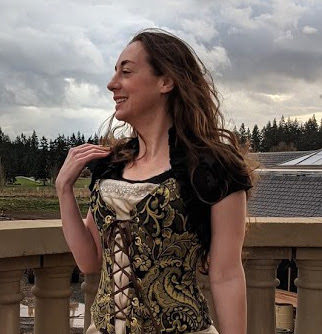Lynn Gardner traveled the United States for twenty-five years with her career Air Force husband and developed a love of exploring this beautiful country, discovering fascinating places to set a story, and weaving local history into intriguing mysteries. When her husband retired, they began travelin…
Thursday, December 30, 2010
Tuesday, December 28, 2010
Interview with Author Julie Wright
http://juliewright.com/blog/ Julie Wright (1972-still breathing) was born in Salt Lake City, Utah. She's lived in LA, Boston, and the literal middle of nowhere (don't ask). She wrote her first book when she was fifteen and actually got the thing published. Eleven novels later, she thinks she…
Thursday, December 16, 2010
Interview with Author Traci Abramson
Originally from Arizona, Traci Hunter Abramson graduated from BYU in finance and international business. She spent six years working for the Central Intelligence Agency before taking on a really demanding job: full-time mom. Always looking for new challenges, Traci also began coaching her local hig…
Saturday, December 4, 2010
Interview with Reader Mary Walker
My parents signed me up for my first book club before I was born. As a toddler I never went anywhere without my favorite doll and a book. Today, I still never go anywhere without a book. In my past life I worked as a technical editor for eyeglass prescriptions. I sometimes find myself editing the bo…
Wednesday, December 1, 2010
Interview With Author John Booth
Deirdra: When did you first know you wanted to be an author? John: I wanted to write from about the age of 11 but my ability to hand write stories of any length was zero. It took modern technology to allow my writing to blossom and I didn't begin writing novels until 2006. Deirdra: What is your…
Subscribe to:
Posts (Atom)
Total Pageviews
Pages
- Home
- Art
- The Watchers Books
- Time Management For Creative People Workbook
- Book Trailers
- About Deirdra
- Clothing Designs and Paper Dolls
- Photography
- The Watchers Screenplay
- Crafts and Remodeling
- Book Covers
- Animal Family
- Free Stuff
- Watchers Worldwide
- Q & A
- Contact
- Recipes & Food Art
- Family Safety Advocacy
- My Garden
- Endorsements
- The Sanctuary
- News & Events
- Little Church on the Prairie
- Religious Women's Studies
- A Storybook World Podcast
|
Add this to your site |
Highlight the code below to get A Storybook World button











